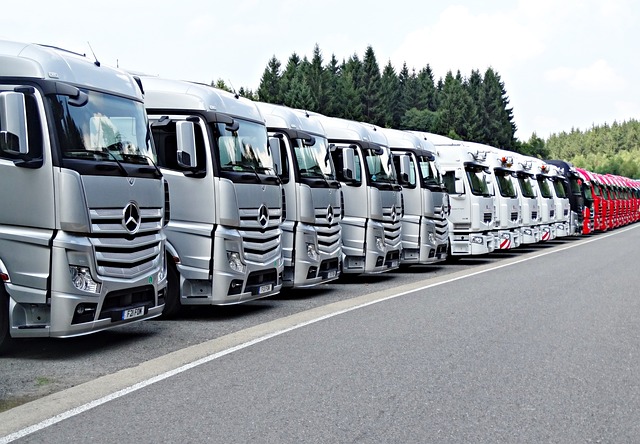Solo transport and logistics operators face challenges securing affordable cargo insurance due to their unique risk profiles, lean teams, and limited resources. Specialized insurers can develop tailored policies offering necessary protection without exceeding budget constraints, fostering customer loyalty among independent professionals. Cargo insurance savings are vital for these operators' business continuity, enabling them to remain competitive in an unpredictable market by mitigating financial risks from accidents, cargo damage, or liability claims.
Many solo operators face significant challenges securing affordable cargo insurance, hindering their growth and competitiveness. This article delves into the unique needs of these independent business owners and explores specific risks they encounter in their operations. We analyze the barriers to accessing affordable cargo insurance, including high premiums, limited market access, and a lack of tailored options. By comparing policies, leveraging technology, and negotiating rates, solo operators can save on costs. Additionally, we provide tips for effective risk management through best practices, industry associations, and building a solid reputation.
Understanding the Unique Needs of Solo Operators

Solo operators face distinct challenges when it comes to securing affordable policies, often requiring tailored solutions to meet their unique needs. These independent professionals, whether in transport, logistics, or other sectors, operate with lean teams and limited resources, making them price-sensitive yet demanding high-quality coverage. They need cargo insurance that offers the necessary protection while aligning with their budget constraints.
Understanding this dynamic, insurers can develop specialized policies that cater to solo operators’ specific risks and rewards. By recognizing the importance of cargo insurance savings for these individuals, insurers can create flexible plans that offer comprehensive protection without breaking the bank. This approach not only ensures that solo operators remain competitive in their fields but also fosters a loyal customer base among this segment.
– Definition and characteristics of solo operators

Solo operators, often referred to as independent contractors or self-employed individuals, are entrepreneurs who undertake tasks or projects on their own accord, without a formal employer-employee relationship. This segment includes professionals like freelancers, gig workers, and small business owners who operate with minimal overhead and typically manage all aspects of their operations independently. They may offer services in various sectors, including transportation, logistics, consulting, or creative industries.
These operators face unique challenges when it comes to securing affordable insurance policies, particularly in high-risk industries like cargo transportation. Despite the potential for significant financial savings through group purchasing power and specialized coverage options, many solo operators struggle to access competitive rates due to their individual risk profiles. Cargo insurance savings can be a game-changer for them, offering protection against unforeseen events that could lead to substantial financial losses, ensuring business continuity and stability.
– The specific risks they face in their operations

Solo operators, often navigating a complex landscape of logistics and transportation, face unique risks that can significantly impact their operations and bottom line. Without the support of a larger organization’s risk management strategies, they are left to bear the financial burden of potential accidents or losses. These risks encompass a wide range, from damage or loss of cargo during transit to liability claims resulting from incidents at loading/unloading sites.
One of the key challenges these operators encounter is securing adequate insurance coverage that balances protection with affordability. Cargo insurance savings are crucial for maintaining profitability, especially in an unpredictable market. Many solo operators struggle to find policies that offer comprehensive protection without breaking their budget, leaving them vulnerable to financial strain from unforeseen events.
Challenges in Securing Affordable Cargo Insurance

Securing affordable cargo insurance can pose significant challenges for solo operators, often leading to a risky situation where they either operate uninsured or overpay for coverage. The primary obstacle lies in the unique risks associated with independent operations, which are frequently overlooked by traditional insurance providers. These businesses, typically characterized by limited resources and high competition, struggle to find policies that offer adequate protection at reasonable rates.
The lack of standardized pricing models and the subjective nature of risk assessment make it difficult for solo operators to secure cargo insurance savings. Each operation has distinct needs, and insurers often charge based on a variety of factors, including the type of cargo, distance traveled, and safety records. For solo operators, demonstrating a robust safety track record can be challenging, leading to higher premiums or even denial of coverage. Therefore, finding affordable options requires strategic navigation, understanding industry-specific risks, and potentially seeking specialized insurance brokers who cater to this niche market.
Solo operators, with their unique operational challenges, often struggle to find affordable cargo insurance that meets their specific needs. By understanding these risks and navigating the current market dynamics, it’s feasible to secure substantial cargo insurance savings without compromising coverage. This requires proactive research, comparisons, and leveraging specialized providers who cater to this niche segment. Embracing innovative solutions and digital tools can further streamline the process, making quality, affordable cargo insurance more accessible to solo operators.
